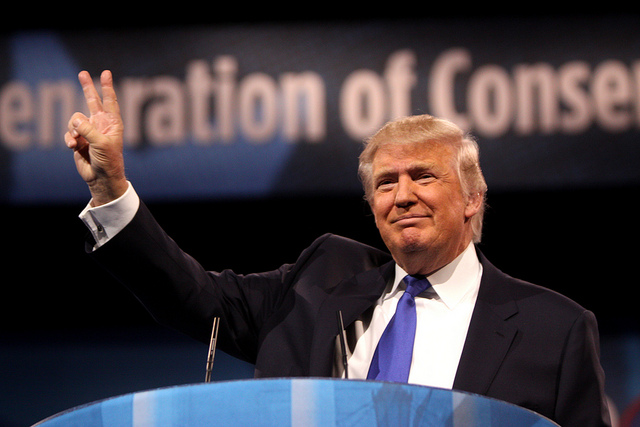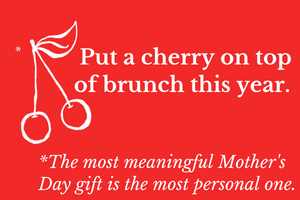
Eleditor’s note: We welcome all points of view, as long as helpful and respectful and fact-based. Contribute your thoughts, if so inspired, here—our mission is to bring all together in mindful discussion, so that we may learn, share and listen. Submit your experience or thoughtful article here.
It’s impossible to look at any news source these days without hearing the latest outlandish and offensive statements by Republican presidential candidate Donald Trump.
And good luck getting on Facebook or other social media without reading highly polarized statements about him and the upcoming presidential election. I, for one, want to hide in my bed, run away to some hot springs…or flee the country until it’s over and pray it all works out okay.
However, if there’s one thing I have learned in the past 30 years of being on the spiritual path, it’s this: work with what’s in front of you. Whether you assign what’s happening in your life a particular meaning (e.g., Why did this happen to me?” or “How did I manifest this?”), the fact is that it’s there.
And, the reality right now is this: we very likely have to deal with Trump being in the limelight for a few more months (and hopefully not longer). So, I asked myself: how can we take his abhorrent behavior and learn from it? While my spiritual path has been multifaceted, I’ve felt a strong kinship with Tibetan Buddhism since 2000, and went to Naropa for one of my graduate degrees, and have worked with a particular teacher in this path more intensively for the past couple of years.
So, I have Buddhism on the brain.
One thing that recently came to mind was that Tibetan Buddhism talks of six different realms of karma, samsara and desire. Don’t think of them as some sort of purgatory-like place where you may end up after you die though; these are states of consciousness that any of us can fall into, and understanding them can help us discover patterns that play out in our lives.
For example, many successful people—and many on the spiritual path—find themselves in the “God Realm,” which has a very holier-than-thou feel to it. If you’re hanging out there, you may find yourself thinking you are more “evolved” or better than others. (If you’ve ever judged someone for not being as “spiritual” as you are, that’s God Realm.) Another is the “Hell Realm,” where you identify as a victim and may feel hateful toward your supposed persecutors while in fact you end up putting others through hell. Another is the Titan Realm (or, Asuras), who constantly fight and are very envious of those who seem to be getting ahead. And then there’s the Hungry Ghost Realm (or, Pretas), where a deep-seated neediness plays out: you can never be sated or have enough.
The Human Realm in Tibetan Buddhism warns of “self-defending justification”—justifying and defending one’s own behavior. Finally, the last one is the Animal Realm, which is all about Me and Mine (as opposed to Ours), and choosing to interrelate and connect.
We tend to bounce back and forth between these at different times—everyone does it.
So what can we learn from Trump’s behavior? For starters, we can certainly see him in God Realm. After all, he has “a very good brain”—he’s surely better than everyone else, right? Trump has a good Titan in him, fighting anyone who disagrees or says anything bad about him (even if it’s not in his overall political interest to do so).
He is certainly defending and justifying his behaviors, per the Human Realm. “Yes, Obama founded ISIS…Oh, I was just being sarcastic!”
Trump’s policies, about building a wall to block off Mexico, and protecting “America’s” interests (really, white male America’s) reflect the Animal Realm, all about Me and Mine.
Don’t forget Trump’s huge hungry ghost energy, constantly wanting more and more attention, saying anything that will put the media into a frenzy, even if it’s absolutely ludicrous and clearly untrue. And, hanging around the Hell Realm, he paints himself as a victim of the media, while spewing hate-filled rhetoric 24/7.
However, while it’s tempting to simply label Trump as a terrible person and demagogue, the real lesson comes when we reflect on how these behaviors show up in ourselves…when, as Tibetan Buddhism states, we are “poisoned.”
About what in your life do you consider yourself better than those around you? (More educated, more spiritual or evolved, more self-aware, more intelligent….)
When do you attack others? Who are you envious of?
What circumstances cause you to defend and justify yourself?
Around what do you get possessive, be it money or a lover?
Ever feel like you can never quite have enough (love/money/attention/ice cream)?
When do your identify as a victim, while putting others through hell with hate-filled stories of what someone did to you?
Now, don’t make yourself wrong for succumbing to these. They happen to everyone—and they’re all opportunities for growth. For seeing others more clearly. Coming into harmony and connection. Opening into your presence. Giving from your heart.
Finding grace.
Trump brilliantly highlights for us our own flaws. This is important to recognize: when we only see error in others, without reflecting on how we may be doing this ourselves, it becomes a shadow. So this path of reflection allows us to witness a cartoonish, ridiculous version of what we could become—or of what we may already be doing at times—and make choices otherwise.
I wouldn’t exactly go so far as to call Donald Trump a Bodhisattva—and I certainly hope he is not elected President nor holds any other position of power. But we can view his poisoned behaviors as reminders of the traps we can all so easily fall into, and frequently do. As we become aware of these traps—and use mindfulness and practice to move from them back into presence—we take steps forward on the path of our personal growth and evolution.
May all beings be happy and find peace. Including—especially—Donald Trump.
Author: Jonathan Bender
Image: Gage Skidmore at Flickr
Editor: Renée Picard






Read 14 comments and reply